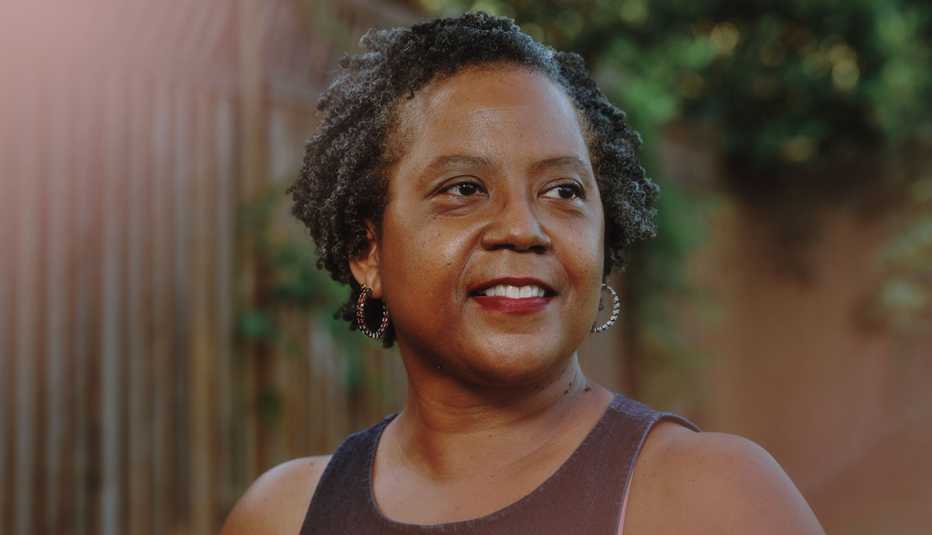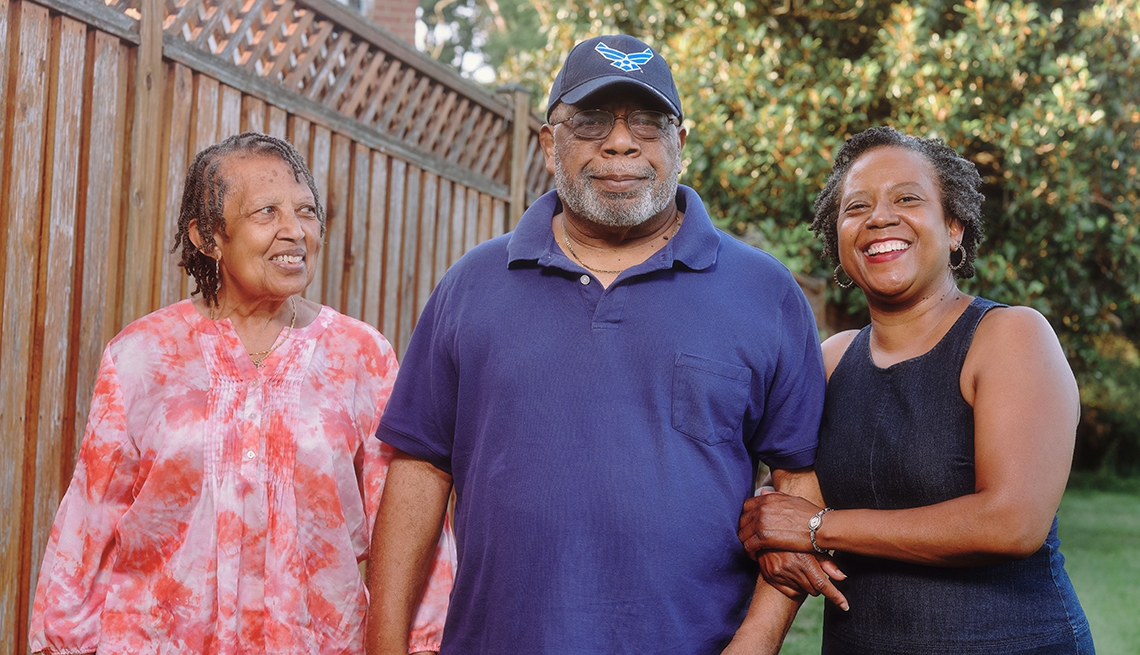“This was a high-level review, and they brought in experts, scientists, did a comprehensive review of the literature and weighed all the research that had been published since the last review,” Barnes said. “Then they decide if they feel the evidence is strong enough – they think it’s caused by Agent Orange. They’ve said in the past there’s not enough evidence for dementia. But I think studies like the one we published The more research they do, the more likely they will be able to make that decision over time.”


Belinda Edwards said while being a caregiver is stressful, it’s also a blessing. “In both sides of my family, I’m the only one who has both parents,” she said.
Jared Suarez
Getting benefits can be difficult
Edwards received benefits from the VA such as bathroom grab bars, 10 hours of home care per week and drug coverage. She is gathering information about her father’s military service to file a disability claim with the Veterans Administration. However, he suffered from dementia and few people talked about his time in the Air Force, which made his life difficult. She has a faded and illegible copy of her military records but is waiting to receive a new copy before working with the Veterans Service Organization (VSO) to file a claim.
“It’s a difficult system to navigate. I think a lot of veterans and their caregivers may not have used the VA immediately after leaving the military,” said Kristina Owen, director of client services for the Family Caregiver Alliance. “People who are employed and have coverage through their job – if they didn’t have a service-connected disability, they might never apply for VA benefits. Now that person might be 70, 80, 90 years old and they have to go through The process of applying, determining eligibility, and obtaining resources.”
When it comes to getting disability benefits, “dementia is often rated as a 9304 or neurological disorder,” said Scott Hope, associate director of national services for Disabled American Veterans (DAV) training. “Let’s say this is alcohol-induced dementia. If this is service-related, if this happens while on active duty, then dementia itself is a word that is used, but it’s not necessarily a diagnosis.”
Edwards listed specific areas where she needs help and believes will continue to pose challenges for the health care industry, including transportation for people with dementia or cognitive impairment, immediate prescription delivery, affordable care, and medical care. Health care policy changes to remove barriers to medical care at home. Caring for married couples.
“The health care industry needs to understand that not everyone is there to help the community. Plain and simple, we don’t. They need to be prepared for all the only children that are coming after me,” Edwards said. “I’m so grateful to the Alzheimer’s Society for helping me when I was crying at two in the morning because something woke me up.”
Depending on the needs of veterans, the VA told AARP it offers a range of services for people with Alzheimer’s or dementia, which may include “in-home primary care, homemakers and home health aides, respite care, adult day care, outpatient, inpatient hospital, nursing home, palliative care or hospice care. Caregiver support is also an important component of these services,” it said. “If you are a veteran diagnosed with dementia or Alzheimer’s disease, or are caring for a veteran with dementia or Alzheimer’s disease, please contact your local Veterans Administration to find out More information about treatment options.”
By fiscal year 2026, the VA’s Office of Geriatrics and Extended Care plans to complete the development of programs nationwide to help veterans stay healthy and active at home or in smaller, home-like settings. These programs include expanded home-based primary care, medical foster homes, and veteran-directed care programs.
“It’s not a burden to take care of me; it’s a blessing. On both sides of my family, I’m the only one who has both parents,” Edwards said. “Caregivers, I know this is stressful. I have cried days and nights, but I want them to know they are not alone. Don’t give up on asking for help because every “no” will be met with a “yes” in some form “.”
Get the latest information on brain health and wellness from AARP Brain Health and Wellness Page.

